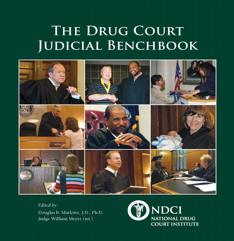Back to the Future: Evidence Based Sentencing Systems
The 12 part series of articles on Evidence Based Sentencing Systems (see: Evidence Based Sentencing Systems) concludes as it began, with an admonition to recognize that technology and science have changed the nature of the sentencing process, What is needed is a more comprehensive and systemic approach that recognizes the advances made in sentencing, from risk/needs assessments and cognitive behavioral therapies, to the development of hybrid sentencing sysems that employ traditional as well as problem-solving practices.
We need to look beyond conventional responses to criminal behavior, acknowledging that our over-reliance on imprisonment has been a tragic mistake. The science and research advances of the past ten years should inform the sentencing decisions we make. But we should also look back into history. The prison sysytem in this country is little more than 200 years old. Up until that time, custody as a response to criminal behavior was largely unknown and community control exerted extraordinary influence over the individual. We need to reestablish the primacy of the community through our sentencing and rehabilitation models, in essence going “Back to the Future” (click on image on the left: The Drug Court judicial Bench Book, Chapter 1, Drug Courts: Back to the Future; J Tauber, NDCI, 2011)
We are confronted with new evidence-based sentencing practices that demand a fresh look at a very old paradigm. We need to acknowledge the central idea of evidence-based sentencing, that sentencing demands a systemic team based approach, and ultimately more effort and time than a single judge can provide. Problem-solving courts provide the structure for a hybrid system, where team based sentencing systems are capable of providing continuing sentencing processes, probation and court tracks , risk/needs information, and rehabilitative capabilities that protect the community, yet address for the offenders criminogenic needs.
We will be challenged in ways that we never expected. Our concepts regarding the treatment of non drug using offenders, drug abusers versus drug dependent offenders, low risk offenders versus low to medium risk offenders, all demand that we rethink basic sentencing and rehabilitative concepts.For those willing to open their eyes, Evidence Based Sentencing Practices can open the door to better and more cost effective sentencing.


